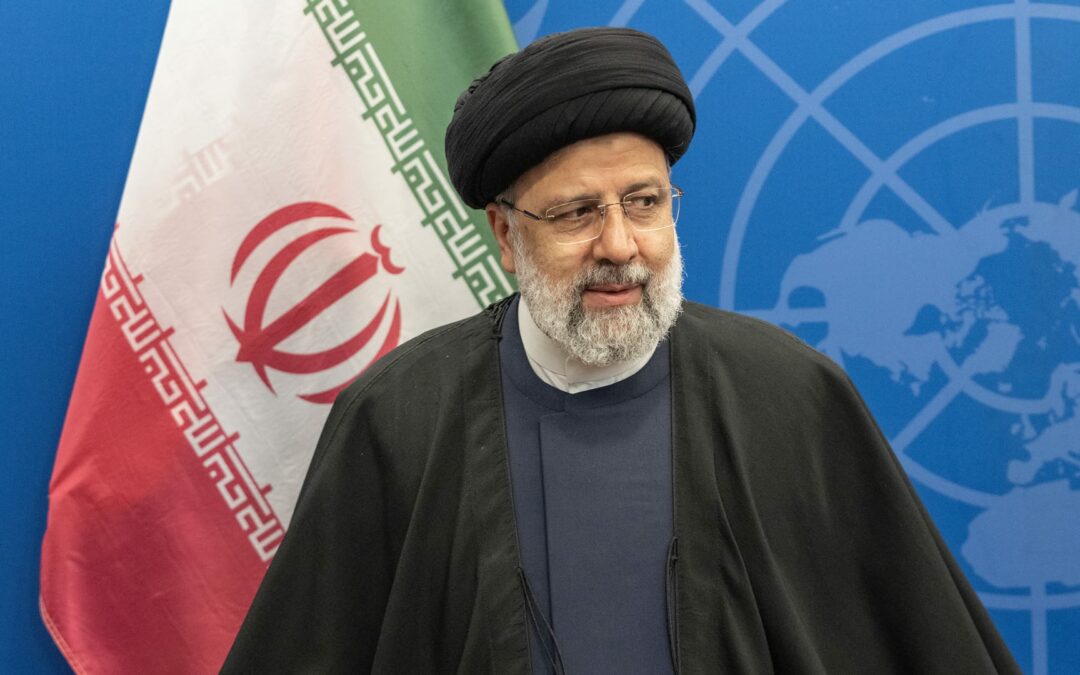The President of Islamic Republic of Iran Seyyed Ebrahim Raisi during the meeting with Secretary-General Antonio Guterres UN Headquarters.
Lev Radin | Lightrocket | Getty Images
The sudden death of Iranian President Ebrahim Raisi in a helicopter crash plunges Tehran into fresh uncertainty at a time when it already faces deep economic decline, popular discontent, and war.
The helicopter carrying President Raisi suffered a hard landing on Sunday while returning from Azerbaijan in poor weather conditions, Iranian state media reported on Monday. Iran’s Foreign Minister Hossein Amirabdollahian also died in the accident.
All eyes are now on what comes next for the Middle Eastern power, which is home to nearly 90 million people and whose government backs a number of regional proxy groups including Gaza’s Hamas, Lebanese Shia militia Hezbollah, and Yemen’s Houthis.
Some analysts expect a fair degree of continuity, while also noting that this could present an opening for Iran’s powerful Islamic Revolutionary Guard Corps (IRGC) to gain even more control over the country’s political direction.
Elected in the summer of 2021 amid the lowest voter turnout ever for an Iranian national election, Raisi was a hardline right-winger seen as a potential successor to the Islamic Republic’s 85-year-old Supreme Leader Ayatollah Khamenei. His death now sets into motion a pre-established succession process that empowers current Vice President Mohammed Mokhber to assume the interim presidency and hold an election within the next 50 days.
Elections in Iran are considered unfree, as the powerful and ultra-conservative Guardian Council ultimately decides who is allowed on the ballot in the first place.
“What we’ve been seeing the last few years really is a power struggle between the IRGC on one side with other conservatives factions,” Nader Itayim, Mideast Gulf Editor at Argus Media, told CNBC’s Capital Connection on Monday.
Over the next 50 days of the interim presidency, the IRGC’s role in Iran’s upper echelons of power is “going to remain intact and even potentially intensify,” Itayim said. “That interim presidency … [is] going to potentially pave the way for even more IRGC control over policies.”
The relationship with Israel and the U.S.
Crucially, though, “Iran is not going to change course simply because of this,” when it comes to foreign and domestic policies, Itayim said.
“When it comes to the relationship with the U.S., and likely [with] Israel, nothing is really going to change there. There’s wider issues at play between these countries and those are likely going to stay, those are deep rooted issues.”
Iran has refused to have formal diplomatic relations with the U.S. and rejected recognizing the state of Israel for decades, and remains under the weight of severe U.S. and Western sanctions. Attempts to make progress in talks to revive the Iranian nuclear deal repeatedly failed over the course of the Joe Biden presidency. Amid Israel’s war against the Palestinian militant group Hamas in the Gaza Strip, Israel and Iran have traded missile and drone barrages, putting the region on edge and spiking fears of a wider war in the Middle East.

Raisi’s death “comes at a difficult time for Iran,” according to Sanam Vakil, director of the Middle East and North Africa program at Chatham House, but the world should still expect continuity, as the Iranian presidency is not where the state’s power truly lies.
“The President is in theory second-in-command within the Iranian state, but he doesn’t have the same sort of independence and ability to maneuver as president and many Western democracies do. He serves at the behest of Iran’s supreme leader,” Vakil said on Monday.
“He also doesn’t have independent foreign foreign policymaking authority,” she added. “So his death will really be more about filling his place finding someone to step up and step in to maintain cohesion within the system.”









